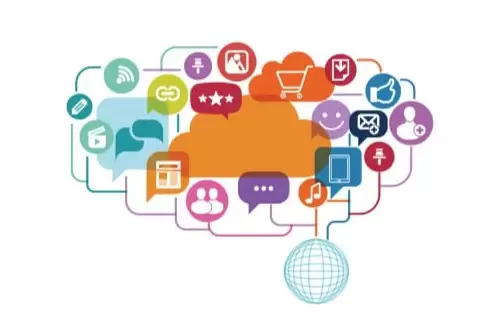Open source software is getting more and more popular each day.
Today we enjoy high-speed Internet access at work, at home, and even on our mobile devices.
We can do almost anything through the network, from booking a hotel or making an online purchase to accessing work platforms, videoconferencing, or studying.
The evolution of the Internet has been spectacular.
In addition, it has become fundamental to the functioning of today’s society.
Moreover, all sectors use the Internet to carry out basic tasks and functions.
Similarly, cloud computing and other information and communication technologies are a part of our daily lives.
To reach this advanced moment in the use of the Internet, free software freedoms have been fundamental.
In other words, without them, it isn’t easy to imagine where we would be today.
However, many of the advances made could not have been carried out or would only be available to a few.
Quick Overlook
What Is Open Source Software?
Thanks to software development teams software goes further.
One associates it with freedom and not with the price.
For a software to be considered accessible, it must comply with four fundamental premises:
- Not to limit its use. You must be able to use it for any purpose without restrictions.
- One can share it. This type of software can be shared at no cost.
- It must be transparent. The code of free software must be OK and not have non-disclosure agreements or similar restrictions. In this way, anyone can read and study it.
- You can modify it. Free software can be modified by third parties to add new functionalities and improvements. In addition, one can share these changes publicly.
The concept of free software arose in the ’70s, so it is not something new in computer science.
Richard Stallman is the pioneer in creating free software with the creation of the GNU project to create a completely free operating system collaboratively.
Above all, the Internet has been a fundamental channel of communication and interaction for free software since it has allowed the creation of global communities/
This is where developers and programmers from all over the world share knowledge, ideas, and problems related to the development of free software and technology.
What Are the Advantages of Open Source Software?
Free software brings a series of benefits to users and companies, organizations, and governmental entities.
Here are the main advantages.
Prevents Monopolization
The development of free software prevents large corporations from monopolizing the market and helps to improve competition among companies.
Therefore, the user obtains a higher quality product or service at a lower price.
Open Source Software Improves Compatibility
They develop free software in such a way that it follows standards that facilitate communication between applications.
Increased Security
The development of free software involves much more people than private development.
In this way, many more eyes observe the code that allows reducing vulnerabilities or security holes (this is the origin of the typical phrase “Linux is more secure than Windows”).
Large Community of Open Source Software
Behind free software, there is always a community working on it.
Therefore, it is possible to access a lot of information and documentation about it.
Tackling Projects
Thanks to free software, you can undertake many tasks that would be out of reach for many companies and individuals if they had to pay licenses.
How Open Source Software Has Influenced the Internet
Many of the advances on the Internet have occurred thanks to free software.
Web pages are primarily hosted on Linux servers.
They use such software as
- Apache (HTTP webserver)
- PHP code
- MySQL (database management)
This helps in achieving high performance and a high level of security at a low economic cost.
You might know LAMP systems (Linux, Apache, MySQL, and PHP).
They have been a global solution for the configuration of dynamic web servers, with a reduced effort and investment.
In other words, free software has been favoring the development of the Internet in the world.
Thanks to this, a more significant number of service providers such as hosting and cloud providers have emerged.
They have tackled these projects using tools that do not represent an unaffordable economic barrier.
Free Software Protocols
Most Internet infrastructure deals with free software protocols.
For example, DNS domain name servers (BIND) or email management (SendMail).
Network security is one of the points that has allowed the use of the Internet by individuals and companies to grow the most.
Sending personal or banking data encrypted under the HTTP protocol, and SSL/TCL certificates have led to a boom in online commerce and secure Internet communications.
Moreover, open-source software allows a high degree of security as it constantly evolves and develops, continuously incorporating updates and security patches.
Also, the software development for the cloud has advanced in an unsteady way thanks to free software tools.
For instance, repositories, advanced programming languages, frameworks, etc.
The same refers to new technologies such as big data, artificial intelligence, or IoT (Internet of Things).
Open-source software favors them in their development.
They reach a more significant number of users and companies.
Free software has allowed the evolution of the Internet over the years to lead to the current situation.
It is possible to access through the network many sophisticated tools and platforms that make our lives easier.
Therefore, without free software development, the Internet would be very different today.
Large companies and limited use by users of platforms, applications, and technologies may control it.
Above all, the commitment of universities and educational centers to free software is also fundamental for its diffusion and development.
Conclusion
In conclusion, thanks to free software, the Internet and services, in general, have appeared.
It has influenced the growth of hosting, big data technology, artificial intelligence, and many others.
In other words, free software has allowed free access to many platforms and tools that make our lives easier.
